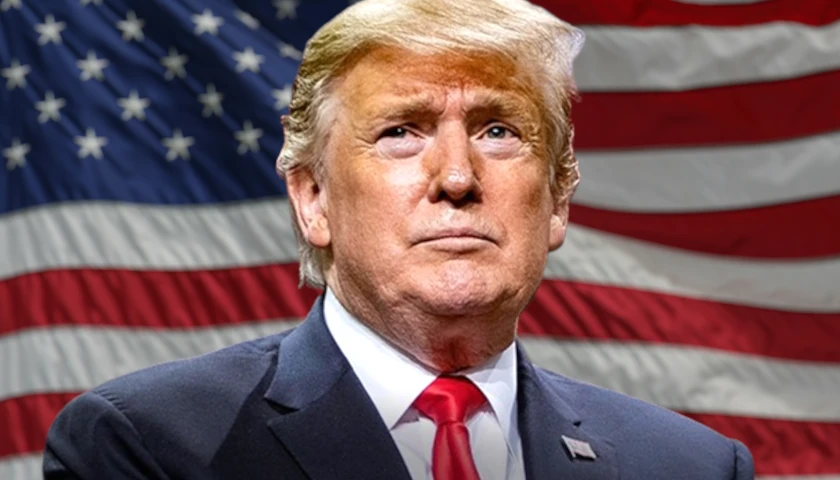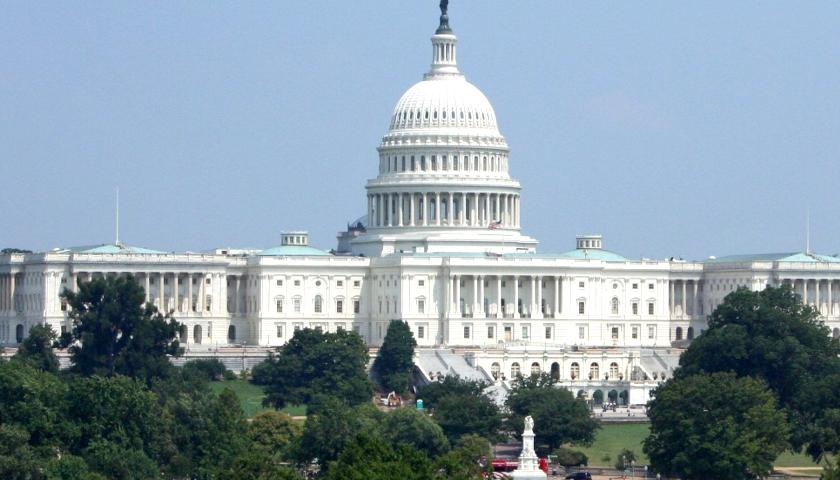by Christopher Roach
The iconic photo of Donald Trump standing tall and defiantly after an attempted assassination speaks volumes. It reminds the whole world that Trump is a fighter. In his case, it is more than a metaphor, as “fighter” is for most of the political class. He showed real physical courage, and this cannot fail to impress.
As society has gotten more modern and organized, physical courage has become less necessary and less valued. Physical ability in general, such as the brawn and endurance required to be a cowboy or coal miner, doesn’t have much to do with the ability to analyze Excel spreadsheets, run a cash register, or do any number of office jobs. Softer skills are in higher demand and are rewarded accordingly.
We are a wealthy and safe society, but also an antiseptic and, in some ways, inhuman one. Our nature does best with purpose and hardship. The modern quest for comfortable self-preservation is a philosophy of life fit only for an amoeba.
The overreaction to COVID in particular was a testament to the recent, feminized obsession with safety, which downplays the value of risk-taking and enjoying life. When the virus arrived, the people in charge reminded us that they think we’re merely vulnerable and stupid toddlers. At the same time, they showed us that they themselves are cowards in the face of risk, willing to destroy the economy, religious freedoms, and our health in an impossible quest to eliminate a highly communicable disease. Schoolmarms like former CDC head Rochelle Walensky and weasels like Anthony Fauci became avatars of our decadent, dishonest, and cowardly ruling class.
While physical courage never fails to impress, during difficult times, the esteem of physical courage particularly reasserts itself. In the wake of the 9/11 attacks, firemen and other first responders were back in style, displacing the wealthy and well-dressed “masters of the universe” on Wall Street. When the Twin Towers were burning, the order of things became inverted, and now brave working-class men willing to walk into burning buildings were calling the shots and saving the office workers.
This is also the reason, particularly in the era of the all-volunteer military, that our service members have always been held in high regard. Their value does not depend so much on the use to which they are put. Americans have fierce disagreements and a lot of criticism of our foreign policy. But the willingness to risk one’s life over and over again is something that onlookers admire, not least because this is a risk pursued voluntarily.
Trump’s courage extends beyond the moment caught on camera. His candidacy and post-presidency all exemplify, if not physical, then moral courage, including high levels of commitment and resilience. If other politicians come into office poor and leave wealthy, Trump’s experience has been quite the opposite.
By becoming president, he has lost a lot of money and been subject to constant attack, beginning with illegal FBI surveillance of him during his campaign in 2016, the hounding and stress of false Russian collusion allegations, insubordination by senior military and civilian leaders, and two impeachments. Not merely taking a financial loss, he has endured lawfare on a grand scale, including scurrilous attacks on his reputation, a baseless civil judgment against his businesses, and four simultaneous criminal prosecutions.
Even under this degree of pressure and attack, Trump did not quit and did not waver. In times of stress, he remains cognizant that his reactions are part of a broader performance. Such self-consciousness about the performative aspect of one’s actions and reactions is, in fact, an important part of leadership. That is to say, a leader must be aware of his reactions to events and how his supporters’ morale will be affected by such reactions. Trump could have gone passively with the Secret Service, ducked on his own, or panicked. Instead, he demanded to walk out under his own power and shook his fist defiantly, blood streaming down his face, yelling, “Fight! Fight! Fight!”
His supporters, understandably rattled by the incident, cheered wildly. So did his many millions of supporters around the country. It was all very in character, turning a disturbing lapse of security into a demonstration of great physical courage under fire, literally.
Trump’s reaction to the shooting reminded me of documentary footage I saw a long time ago, back when the History Channel actually taught history, involving France’s larger-than-life 20th century leader, Charles de Gaulle. It was important for de Gaulle that his Free French Forces be the tip of the spear for the allied liberation of Paris. The Supreme Allied Commander, General Eisenhower, with his strategic and diplomatic acumen, agreed to this request.
The Free French Forces ended up capturing Paris so quickly after the breakout from the Normandy Beachhead that a handful of German forces and Vichy collaborators remained in the city. During an impromptu victory parade, de Gaulle and the crowd were subject to shots from snipers. When everyone else ducked, ran for cover, or cowered, de Gaulle stood tall, not even so much as flinching. He went on to become a popular and polarizing leader of postwar France.
In our highly regulated and rationalistic age, we sometimes forget the importance of emotions and the primitive gestures that have demonstrated leadership ability (or its absence) since time immemorial. Even today, the best leaders remain sensible of this type of language that communicates powerfully and without words.
Trump is a master of the show and a man of masculine instinct in the age of the verbose blockhead. Inches from death, Trump’s mind remained on his mission, and he was conscious of the way the images of him would affect the campaign. This kind of physical courage cannot be faked, and for a campaign that was already doing well, it now appears unstoppable.
– – –
Christopher Roach is an adjunct fellow of the Center for American Greatness and an attorney in private practice based in Florida. He is a double graduate of the University of Chicago and has previously been published by The Federalist, Takimag, Chronicles, the Washington Legal Foundation, the Marine Corps Gazette, and the Orlando Sentinel. The views presented are solely his own.
Photo “Donald Trump” by Donald J. Trump. Background Photo “American Flag” by Charles “Duck” Unitas.






I believe we as a country have eclipsed the turmoil of the 1960s. It’s almost impossible to believe the attempt on President Trumps life was a “lone wolf” attack. While the shooter may have thought he was acting along (or had been mind controlled), the question has to be asked whether his pathway to pulling the trigger was keep clear by the forces of evil.
As we draw closer to the election, and the likelihood of a far greater false flag event, it becomes more and more believable that President Trump is being guided and protected by Divine Intervention. There is validity in “God Bless America”.